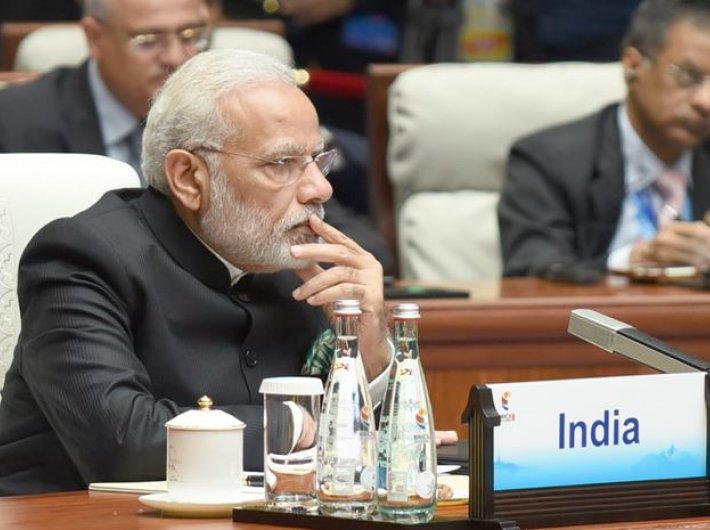Indian diplomacy had continued to expose Islamabad’s policy of using terrorism as a policy even though other nations took it as part of the India-Pakistan sibling rivalry
When Chinese President Xi Jinping was signing on the declaration of the BRICS that referred to the Pakistan- based terrorist groups as threat to peace and security in the region, the Indian delegates must have been overjoyed, for it was the culmination of a nation’s long drawn campaign to isolate Pakistan over supporting terrorism as a state policy.
Prime minister Narendra Modi may be the man of the moment as the credit for snatching away last of Pakistan’s friends at Xiamen would go to him; the fact remains that it was in mid-nineties that Indian policymakers had started a concerted global campaign to expose Pakistan’s diabolical policies before its friends and foes.
This is a classic case of Indian diplomacy’s perseverance while Islamabad made light of it and even failed to realise that it was slowly losing friends and country’s image was getting sullied across the world.
While Indian diplomatic campaign remained apace, Pakistan also faced the natural consequences of its deeds; right from meddling in Afghanistan and raising Taliban against the Soviets and later following 9/11 and hosting global terrorist Osama bin Laden very close to the military base in Abbottabad, Islamabad’s not so tacit support for terrorists got exposed before the world.
Indians had remained undeterred by the world’s indifference to its assertion that Pakistan was using terrorism as a state policy and after these events, things started falling in place and the world began suspecting Islamabad’s intentions.
India started its campaign by inviting the diplomats of different political blocs – Organization of Islamic Cooperation, European Union, Gulf Cooperation Council (GCC), African Union etc. – to Kashmir where Pakistan had unleashed a proxy war against India. Many diplomats could hardly believe that they were talking to Kashmiri Muslims ministers, officers in army, police and civil administration and they all were engaged in fighting Pakistan’s proxy war.
Gradually, the evidence against Pakistan offered to the global powers that matter was piling up when 26/11 happened. Ten sea-borne Lashkar-e-Toiba terrorists launched multiple attacks on Mumbai and killed 160 persons and its communication with the Pakistani ISI officers and other handlers were monitored through American satellites. With American help, India was able to put forth irrefutable evidence of Pakistan’s involvement in the terror operation.
The Americans were angry at Pakistan for unleashing the Haqqani network against its forces and interests in Afghanistan. The same network was being operated by the ISI against India and even Afghanistan government’s efforts to usher in peace in the country. Finally, Pakistan was given a stern warning by the George Bush government.
Now after years of dilly-dallying, US president Donald Trump has almost announced Islamabad’s status as a pariah nation. He has openly accused it of pocketing all the aid from America for fighting terrorism and yet not ending terrorism.
China had vehemently supported Islamabad against India’s proposal before the UN to declare terrorists like Jaish-e-Mohammad chief Maulana Masood Azhar and Lashkar-e-toiba chief Hazif Saeed as global terrorists. However, at Xiamen, the equations changed and China had to support the concerns of fastly developing peers like Russia, Brazil and South Africa and India to list JeM and LeT as an international terrorist organization.
After the initial shock on China’s stand, Pakistan is now coming to terms with its reality. On television shows, experts are questioning their successive government’s stand on sponsoring terrorism. The newly appointed Pakistan foreign minister Khawaja Asif has acknowledged that it’s time to rein in LeT and JeM.

